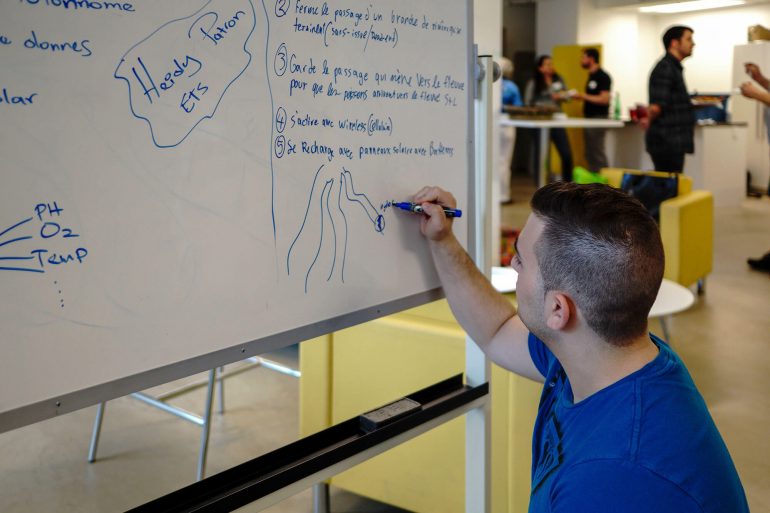The Water Institute at the University of Waterloo and the de Gaspé Beaubien Foundation have announced a three-year partnership that will combine water research and tech to control threats to Canada’s water resources.
To do this, the partnership will bring the AquaHacking 2017 Challenge to Waterloo.
AquaHacking 2017 Challenge is a five-month hackathon that challenges water students, hackers, and engineers to build technology tackling issues related to Lake Erie: a Great Lake that organizers say is crucial to sustaining local economies, communities, and the environment.
“AquaHacking is a multi-generational, multi-sector, and multi-stakeholder movement.”
Five winning teams at the AquaHacking 2017 Challenge will share $75,000, and the top three teams will earn spots at local incubator and accelerator programs to scale their ideas. A panel of judges will select the winners at The Role of Water Innovation in the Blue Economy, an international water research conference taking place in the Waterloo region in September.
“AquaHacking is a multi-generational, multi-sector, and multi-stakeholder movement that aims to conserve the Great Lakes and the Saint Lawrence, and to foster the quality and responsible use of these waters,” said Claude Perras, executive director of the de Gaspé Beaubien Foundation. “Partnerships like this one are important to our mission of championing emerging clean-tech innovation and entrepreneurship while bringing together stakeholders from multiple sectors, jurisdictions and generations to develop integrated strategies for water policy and governance.”
In October 2016, the de Gaspé Beaubien Foundation hosted AquaHacking in Montreal, where teams developed tech to address issues like climate change adaptation, spills, and overflows in the St. Lawrence River. The Water Institute and de Gaspé Beaubien Foundation partnership will bring similar AquaHacking challenges to Waterloo in 2018 and 2019.
“The University of Waterloo has been engaged in water research and entrepreneurship throughout its 60-year history,” said Roy Brouwer, executive director of the Water Institute at Waterloo. “We are thrilled to partner with the de Gaspé Beaubien Foundation to challenge our students, and to tap into Waterloo Region’s thriving tech community to develop new, innovative solutions. We thank the Foundation for their continued leadership in protecting fragile water resources.”


